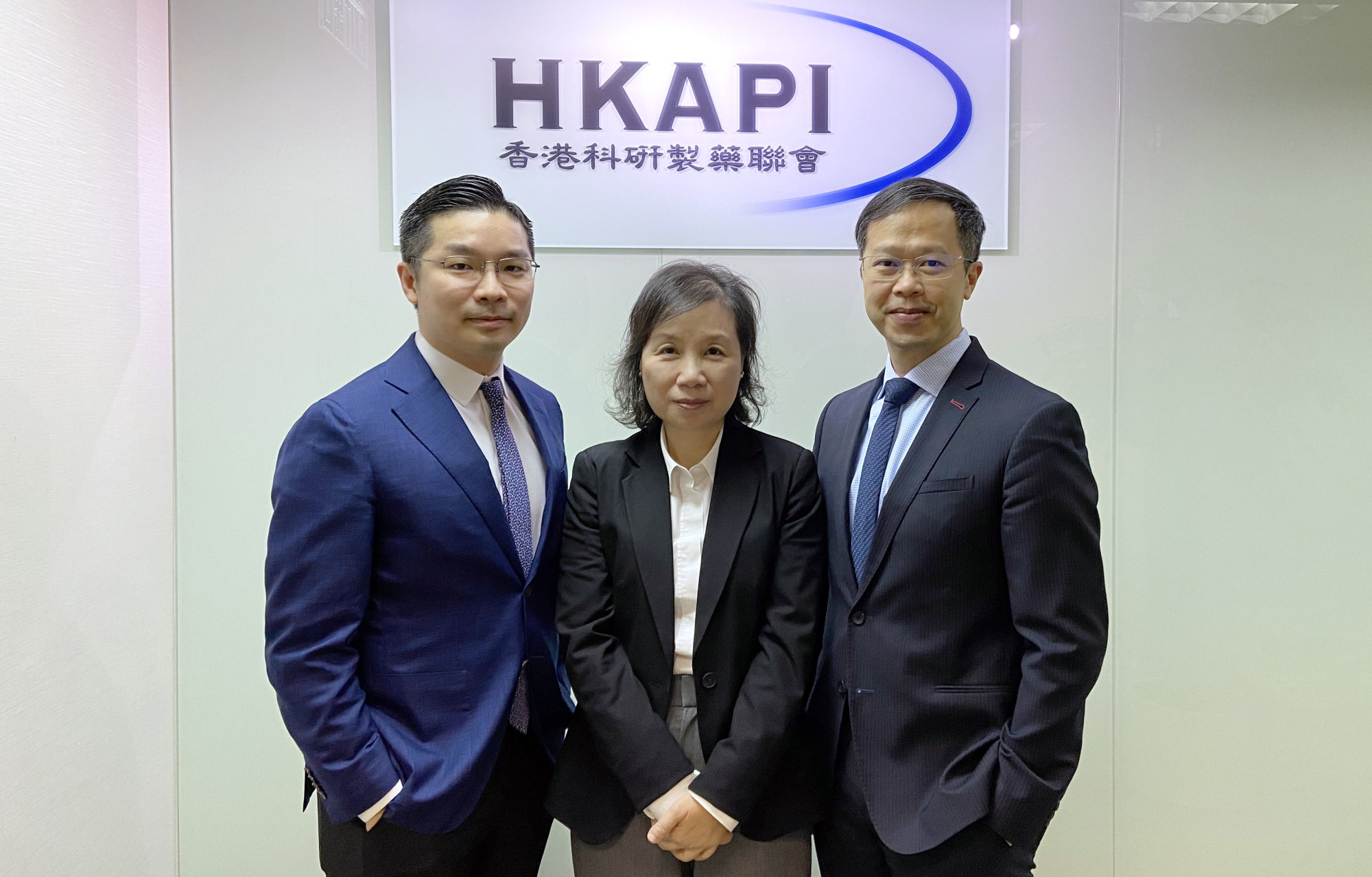
Hong Kong should set up special office to coordinate biomedical research as city aims to become international hub, industry figures say
- Pharmaceutical industry figure one stop shop based on UK government’s office for life sciences would end ‘lack of communication’ among different bodies
- The organisation adds that recruitment of patients for trials from Greater Bay Area would make the city more attractive for drugs trials
Hong Kong should set up a central body similar to the British government’s office for life sciences to coordinate biomedical research efforts, senior figures in the city’s pharmaceutical industry have said.
The Hong Kong Association of the Pharmaceutical Industry on Tuesday called for officials to work to speed up clinical trials and get the participation of more patients from the Greater Bay Area, which would attract more and larger projects that could help boost the city’s economy.
The bay area is Beijing’s plan to create an economic powerhouse involving Hong Kong, Macau and nine cities in Guangdong province.
Sabrina Chan So-kuen, the senior executive director of the association, said that, although Hong Kong was headed in the right direction, it should consider how to work better and faster amid strong global competition, because scientific research and clinical trials had become a main economic driver around the world.
She added a life sciences office similar to the United Kingdom’s, which works closely with the British government’s trade department, as well as other health-related agencies, would help.

Chan said there were many Hong Kong bodies involved in biomedical research, such as the Innovation, Technology and Industry Bureau, the Health Bureau, universities and the pharmaceutical industry.
“The problem now is it seems many things are being done … but everyone is just doing their own area,” Chan said. “There is a lack of communication.”
She said there was a need to coordinate all those involved for more efficient and effective collaboration.
The appeal came after the city outlined plans to become a leading biomedical hub.
The pharmaceutical association said that there was considerable economic potential in clinical trials, which had an estimated economic value to the city of around HK$190 million (US$24 million) a year.
The figure was derived from about HK$500,000 spent on each clinical trial patient.
There have been around 770 company-sponsored trials in the city in the past decade, with an average of five patients involved in each.
More cross-border collaboration to boost Hong Kong’s medical innovation hub plans
Alan Kai Ka-lun, a member of the association’s Partnering for Medical Advancement Task Force, said if Hong Kong could tap into the 80 million-plus population in the Greater Bay Area, the number of patients taking part in city clinical trials could increase “exponentially”.
He said the adoption of a “decentralisation” concept – satellite sites set up in mainland China to recruit patients and provide support to clinical trials based in Hong Kong – would be helpful.
“If a clinical trial was based in Hong Kong as a primary site, and University of Hong Kong-Shenzhen Hospital was a satellite site, patients could come to Hong Kong just once and the rest of the follow-ups could be done in Shenzhen,” Kai explained. “This decentralisation concept could boost recruitment of patients for clinical trials.”
He added travel support so patients from the bay area could visit the city to take part in trials could also be considered.
The association also appealed for a more streamlined process for clinical trials.
It pointed out that it took on average 185 days to recruit patients for clinical trials in public hospitals in Hong Kong, compared to 45 days in Singapore and 60 days on the mainland.
Kai said there was potential to further reduce the time needed for trial applications in Hong Kong by allowing an ethics review and legal vetting of trials to be done at the same time.
He added that the slow processing time in Hong Kong was one of the factors that explained why more clinical trials, especially the more significant phase 1 and phase 3 ones, were done in Singapore over the past decade.
Veteran drug firm boss seeks more public-private partnerships in Hong Kong
Statistics provided by the association showed there had been 522 such trials done in the city over the last decade, compared to 743 in Singapore.
Vincent Tong Wai-shing, the co-sponsor of the association’s task force, said that Hong Kong would also need a pool of people familiar with the biomedical research landscape.
“How could we combine the needs of the pharmaceutical industry with university curriculums?” Tong asked.
He said pharmacy students in Hong Kong only got the chance to learn about industrial drug development in their fourth year.
Tong added more industrial and research elements could be incorporated in university courses to give students exposure to, and a better understanding of, developments in the sector.
The government has proposed the city should develop its own drug regulatory system and it is also planned to set up the Greater Bay Area International Clinical Trial Institute.
The proposals were included in Chief Executive John Lee Ka-chiu’s policy address last month.
Anglo-Swedish pharmaceutical giant AstraZeneca last week revealed a research and development centre, which could be ready as soon as late next year, is to open in Hong Kong.

